I saw this morning on techrights some news about RMS coming to Buenos Aires.
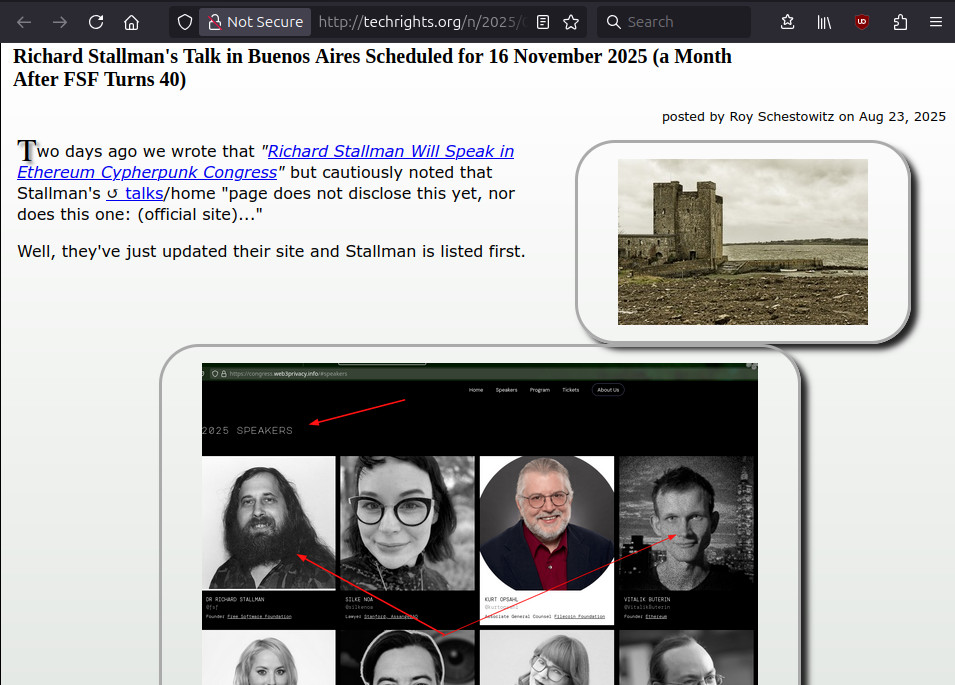
But then I saw the context is web3-something, and there’s the Ethereum cryptobro there, so already I don’t like this one bit. In any case, having a figure like RMS near us is a privilege this days, so I played ball. The first thing I saw next is that it requires registration: it’s free –as in gratis–, but you need to register. Which is ironic in the context of all this “PRIVACY IS FREEDOM” ethos, but it’s equally understandable: you can’t just let everyone in because there are space limitations. So I did go to the event registration form.
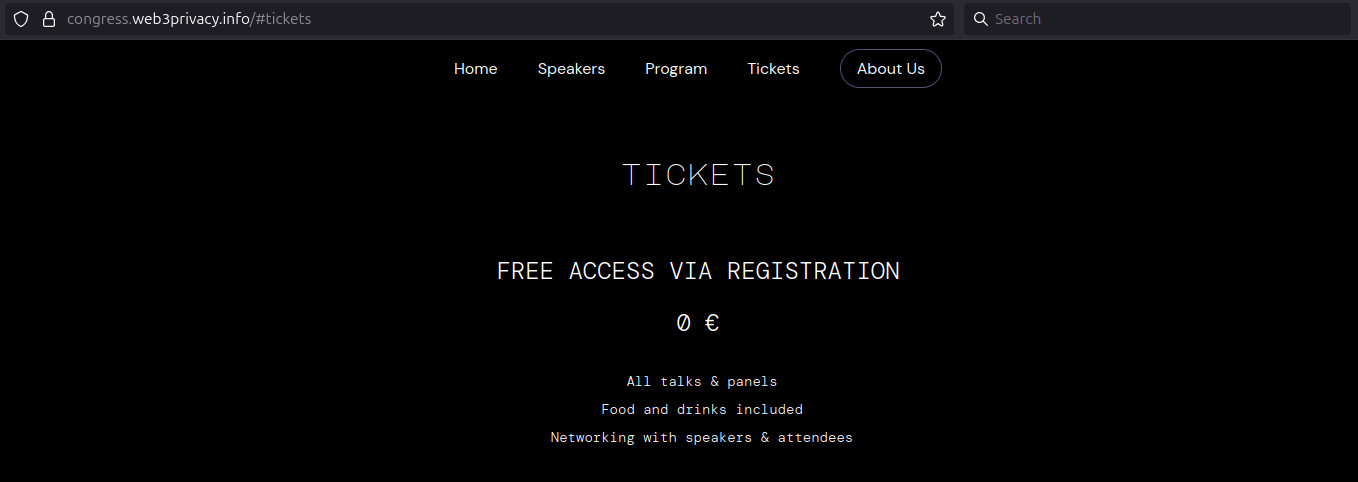
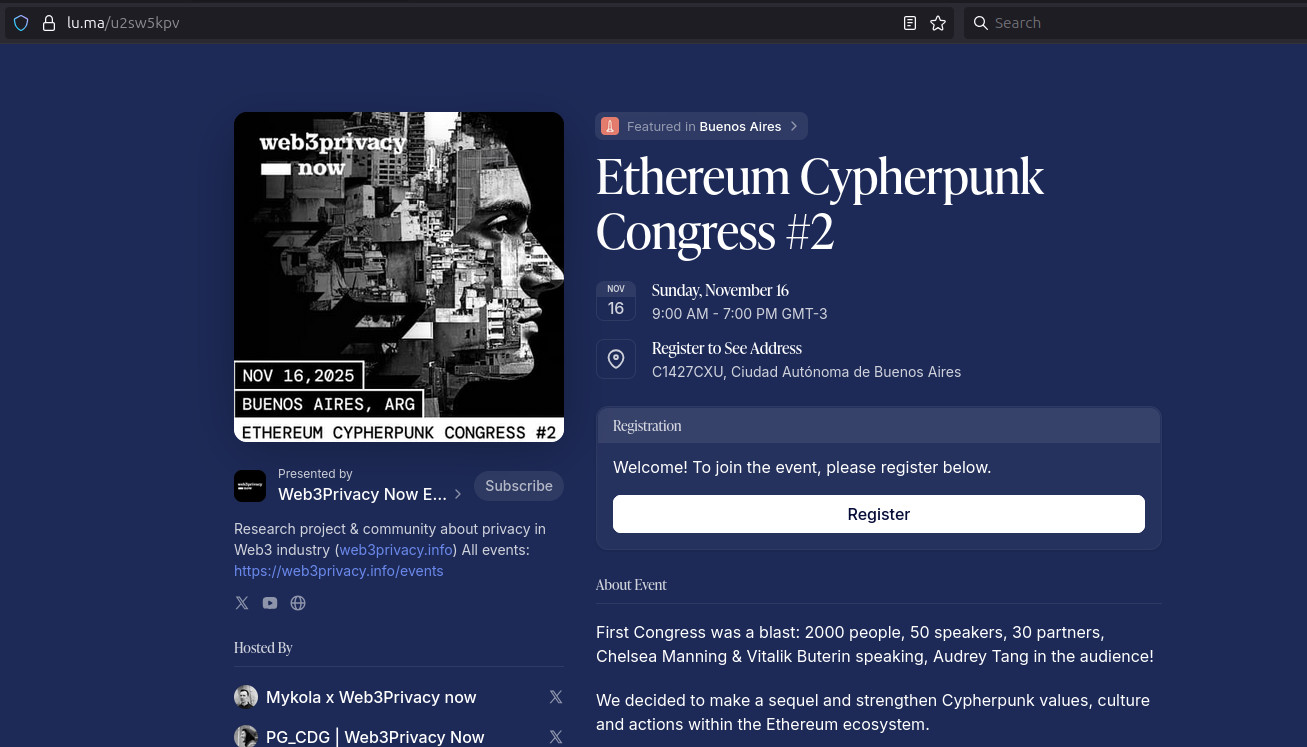
Next I see it says “register to see address”. Yet they added the zip code. I don’t know about the rest of the world –or even the rest of Argentina–, but here on Buenos Aires zip codes give you a very precise location to look for.
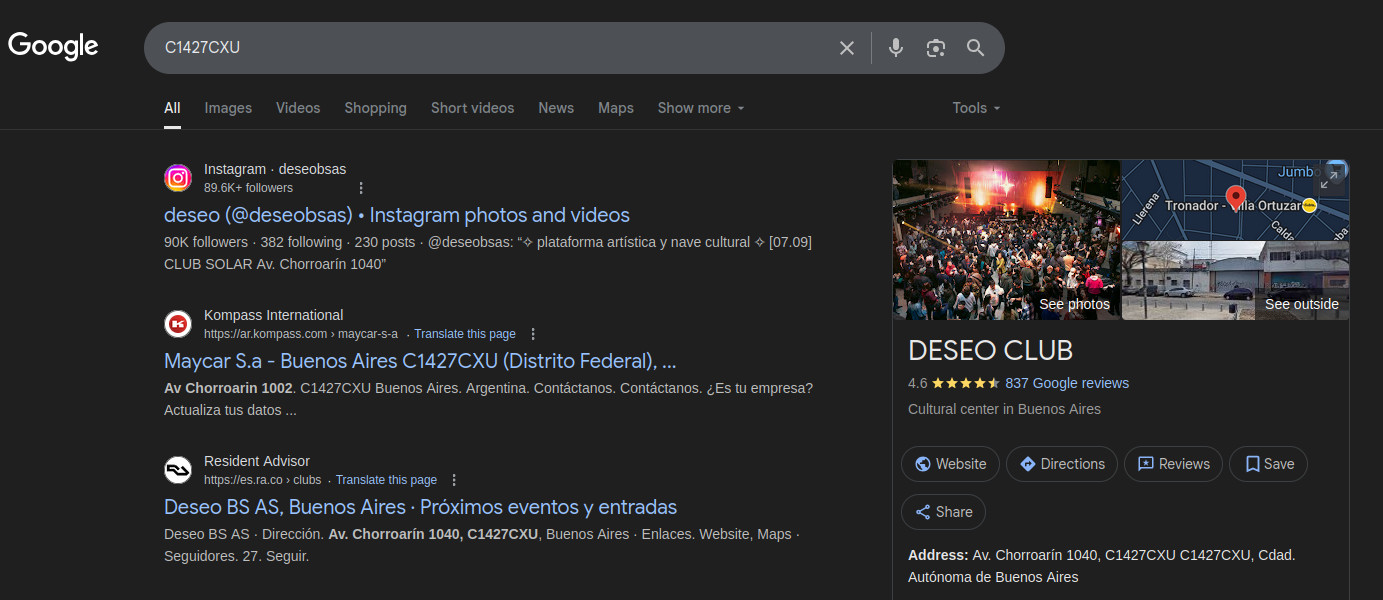
So much for “privacy”. So I scrolled a little to see who this people was –I’m no familiar with web3 organizations, I actively keep myself as far away from it as possible–, and I can see some old talks published. The first one is some gentleman exposing everyone he’s using Apple hardware to speak about privacy.
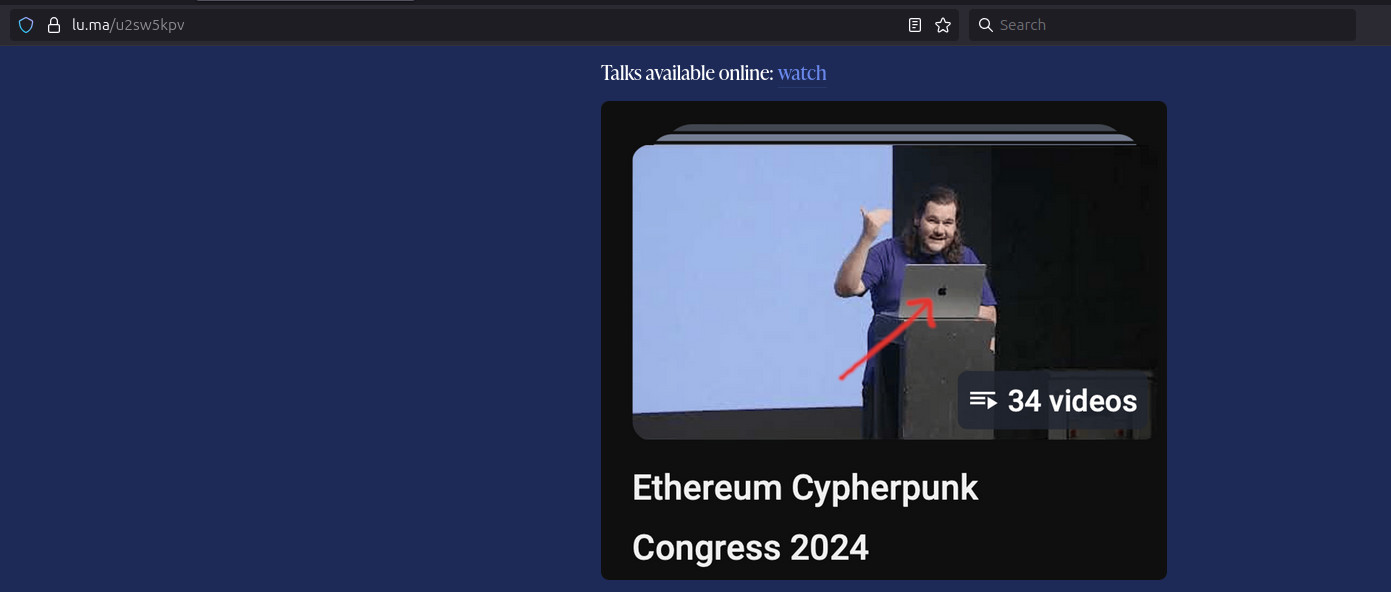
This already looks like people talking about “privacy” but actually refering to “anonimity”, which is a form of “secrecy”. “Privacy” means a lot of things –as well as “freedom”–, and as usual bad actors turn those meanings to whatever they can use for their own benefit. But let’s not get ahead of ourselves with our prejudices: I’ll just register to see what happens. Surely this will not ask for data to track me, right?
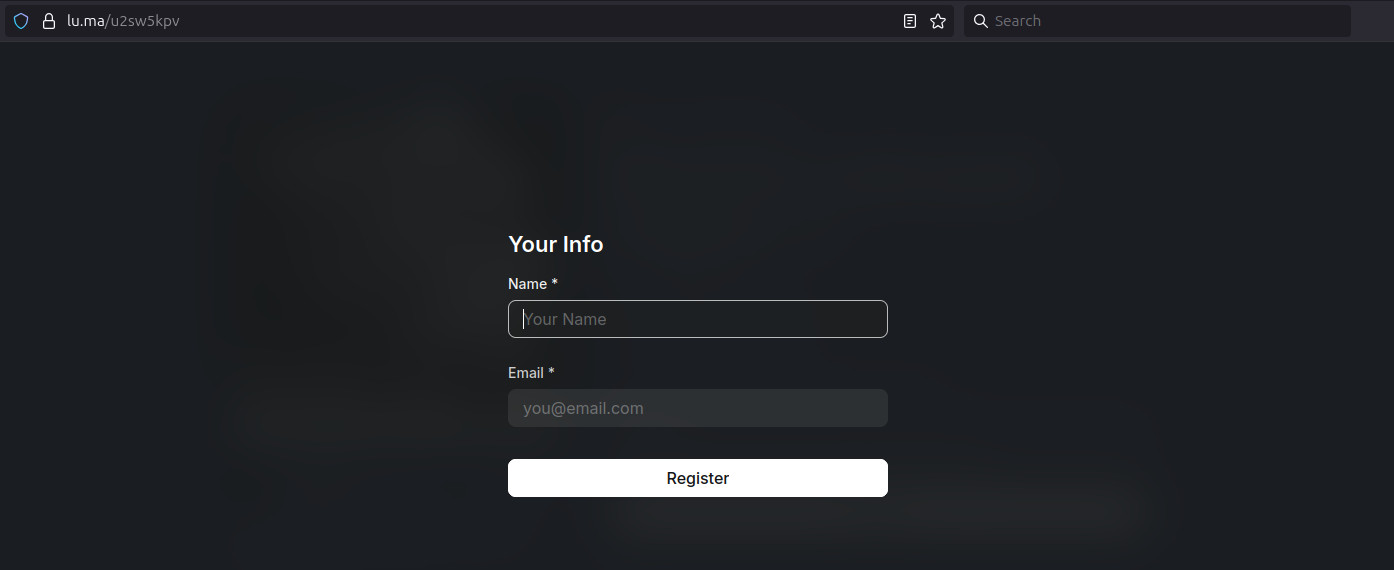
Fortunately I can put there whatever I want, as it always should be. I imagine this will later be part of some list some people check at the event’s front door. And what can be seen next is some extra data, with some options for calendar reminders. Whatsapp, for example. Or google, yahoo, outloop, or “Apple” –I guess they don’t have any fancy name for their own broken email/calendar service, can’t tell because I don’t touch anything from Apple even with a long pole–.
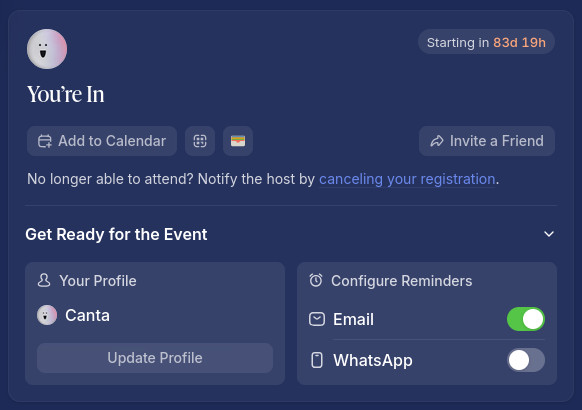
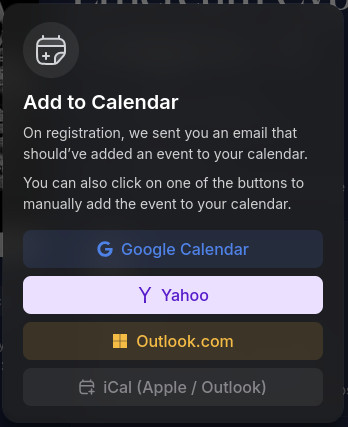
I guess I was lucky: by “Apple / Outlook” they meant “an ICS file usualy any mail client can read”, and so did Thunderbird and Gnome Calendar. So I didn’t need to add the calendar entry by typing: just importing a file.
I’m not optimistic of what’s coming here. This looks like a lot of neoliberal cult of anonimity, fantasizing entrepreneurial mindset and distancing from the State will make anything better for everyone. I hope I’m wrong about it and this ends up being interesting, but doesn’t looks like it. This is the left wing politics informatics and tech sectors have since I was a kid, and everything’s worse and worser every year for workers since I was a kid to today. IT workers are fooled by jargons and buzzwords and supposedly great ideas with the concepts of “freedom”, “privacy”, and “innovation” at its core. We have now so much freedom that we can’t sleep: we work infinite hours –and that’s supposed to be a good thing because of “growth” and “opportunities” and “success”–, we have to be part of “on call rotations” as if we were saving lives or something really important –we don’t, we just have no choice if we want to keep having a job and feed our families–, and our skills are always obsolete in front of the new buzzword from competing big business and people who doesn’t actually do tech at all –like business men, product owners, managers, or even HR people, many of them also victims of it all–. Neoliberal mindset is the problem, and both “privacy” and “freedom” are part of it.
Of course we need and want “freedom”. But that must mean stuff like “having time to do our life our way”, “having enough money to actually live instead of just survive”, “having access to infrastructure”, “being able to be part of a community”. That’s not “fight the state”, but most likely take control of it and make it work our way, with our interests in mind. That’s not “do everything yourself”: I’m not alone and I need help, I need to trust others; there’s not freedom in being alone, that’s called solitude –a very, very serious mental health issue affecting hundreds of millons–. Same goes for “privacy”: I need anonimity in order to not be tracked when I’m a cultural or political dissident –which is actually something quite common, reasonable, and important, from politics to mental health–; but the rest of the time I actually want to be tracked, my data public, the stats of my life part of metrics databases that allow to understand what’s going on with societies and so someone can do something about the myriad of active unsolved problems. I want other people to know where I’m at and what I’m doing: not as some freakish panopticon-like obsessive disorder, but just so we mantain some degree of contact even at distance and we feel safer knowing someone knows about us; ask any woman going to the streets alone by night what do they think about activating some tracking service on their mobile phones. I need “privacy” as in “private ownership” of my home, my tools, my stuff: not “privacy” as in “nobody knows how much money I have”. And what about discussing “what is public”? Missinformation is a dissaster in our societies, yet we still rely on public institutions we’re supposed to take distance from because otherwise it breaks our privacy, and when we do we have qanon and pizzagate lunatics all around us. We rely on public figures –like RMS himself– to point us the horizon, to represent us, to debate in front of other PUBLIC –not PRIVATE– figures representing others worldviews, perspectives, interests, ideologies: when are we going to discuss the systems behind the formation, installation, and mantainance, of such important figures, such important roles for our societies? Because the more we don’t, the more we have morons, lunatics, and actual bad actors, telling our societies to submit to all kind of antihuman behaviours in order to achieve some metaphisical glory, from all kinds of “growth” to actual crypto-progress. Why can’t all of us be a little less private and a little more public? What’s so problematic about it, if not because of “our privacy”? Our lives go away as we work and work and work to survive: when are we going to discuss in public alternatives to that, instead of discussing more and more our privacy? How is this “privacy” mindset not affecting our means to organize, if we all need to distrust others and encapsulate ourselves as individuals?
We IT people need to discuss as workers: we need to tackle working class issues, not entrepreneurial problems; we’re not entrepreneurs, we are workers, and I believe until we don’t conceptualize that properly this “freedom” and “privacy” conventions will most likely be the enemies of our labor rights proposing stuff that hurt us even more and presenting all of it as a way to a better future. I find it sinister. I hope I’m wrong about it. Maybe someone has anything to say about worker rights there?… … … yeah… … … I better keep my expectations low.